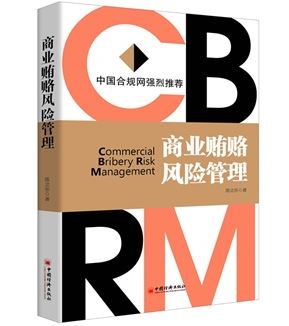China’s development of a central role in the
global economy has been accompanied by a national commitment to demonstrate
that the country’s legal and regulatory system is fully capable of conforming
to and supporting established international norms of doing business. This commitment is inseparable from China’s
business, cultural and economic environment, as privatization and rapid
economic growth create change that requires new judicial, regulatory and
cultural frameworks. As China continues to implement its
obligations to transform from a closed society to one that is governed by
transparency and the rule of law, more complex legal and regulatory compliance
obligations are emerging for domestic companies as well as for companies based
in other countries. Nowhere is this more
apparent, as some case studies
indicate, than in the application of and interaction between China’s
Anti-Monopoly Law (AML), Anti-Unfair Competition Law (AUCL), Price Law and even Criminal Law.
Compliance Overview
The 2008 enactment of the AML attracted a great deal
of media attention, but the less-media favored AUCL (promulgated in 1993) and
Price Law (promulgated in 1997) pose equally substantial compliance risks for
foreign businesses. The compliance
mechanisms for the AML are in fact still evolving especially under the circumstance that the AML is facing amendments.
Despite the still-evolving provisions of the AML, all
three laws have potential for imposition of penalties on companies that violate
their provisions:
· The
AML does not provide for criminal liability for anti-competitive practices in
violation of the law. Nonetheless, Article
52 of the AML imposes criminal liability for serious circumstances involving
obstruction of justice in the process of a governmental investigation, such as
(1) refusing to provide related materials and information, (2) providing
fraudulent materials or information, (3) concealing, destroying or removing
evidence, and (4) refusing or obstructing investigations in other ways.
· The
AUCL seeks to regulate an array of practices that would impede the competitive
orders of the market, with provisions governing the passing off and
misappropriation of trade secrets, predatory pricing and tie-ins, abuse of
administrative powers, bribery and unlawful discounts, misleading advertising
and the organization of lotteries.
· The
Price Law prohibits business operators from engaging in a wide range of illegitimate pricing conducts, including collusion to manipulate market prices, dumping of
goods, adopting discriminatory pricing, manipulating supply or information to
control pricing, or reaping excessive profits.
Inter-Related Compliance Requirements
One of the greatest compliance risks involves
allegations of exclusive sales arrangements, which could violate the AML and
the AUCL, as well as provincial anti-unfair competition legislation.
An exclusive sales arrangement is defined as an arrangement
where a seller/trader provides a certain economic benefit to its counterparty
in exchange for the counterparty's promise not to sell a competitor's products.
If the seller/trader is a business operator with a dominant market position
(DMP operator) an exclusive sales arrangement may be considered an abusive
action under Article 17.4 of the AML because it restricts the counterparty to
conduct transactions only with the DMP operator or other businesses designated
by the DMP operator. Similar compliance concerns may be triggered under the
AUCL and provincial anti-unfair competition regulations.
These regulations do not expressly regard a payment
made in relation to an exclusive sales arrangement as a commercial bribe. In
practice, however, some regional Administrations for Industry and Commerce
(AICs) may take such a viewpoint, which is often difficult for non-Chinese
lawyers to understand. In Europe and the United States, commercial bribery
is commonly viewed as a breach of fiduciary duty. As a practical matter in this view, no breach
of fiduciary duty has occurred under an exclusive sales arrangement. However,
there is a peculiar form of commercial bribery under the AUCL that can be
referred to as “anti-competitive commercial bribery.”
In anti-competitive commercial bribery, the offense
involves the free functioning market competition that the AUCL was formulated
to protect. In addition, the AUCL provides for a blanket
prohibition on a wide range of commercial bribery activities, by which a
company or enterprise (not just a DMP operator) may use valuables or other
methods to induce its counterparty to buy or sell goods. Commercial bribery is
thus conducted with competition disordered and impaired.
The AML prohibits a DMP operator from unjustifiably
restricting a counterparty to conduct a transaction only with the DMP operator
or with other designated business operators. The word "unjustifiably"
indicates that the enforcement authority must use a reasonability standard to
take into account any defenses that would justify the exclusive sales before
issuing a punishment decision. By
contrast, under the AUCL and related provincial-level regulations, there is no
such reasonability standard and an exclusive sales arrangement is often
construed to be a per se violation. Also, defenses that might be
available under the AML would not be applicable to the cases investigated under
the AUCL. The enforcement authorities (such
as the AICs) would thus impose punishments according to their own views
of the offending actions.
An additional dimension to the regulation of exclusive
sales arrangements comes from the Criminal Law, which was promulgated in 1997 –
the same year as the Price Law. Article 226 of the Criminal Law prohibits
anyone from forcing other people to buy or sell goods, or forcing other people
to provide or buy services. If the
circumstance is serious, a sentence of three years of imprisonment or detention
shall be imposed. A fine may be imposed
singly or jointly. It remains to be seen
the extent to which the provision of Article 226 will be applicable to accommodate
the enforcement of the AML—for example, whether or not Article 226 will be
applicable to some practices in respect of abuse of dominant market position.

The Price Law adds yet another dimension to this
regulatory structure, by focusing strictly on pricing behavior that may or may
not be part of the anti-competitive conduct prohibited by the other
statutes. Article 14.1 of the Price Law
is similar to Article 13.1 of the AML, but as a matter of practice (given the
still-evolving provisions of AML enforcement) Chinese governmental authorities to
this point continue regulating price-fixing activities in accordance with the
Price Law. Article 13.1 of the AML prohibits competing
business operators from reaching a monopoly agreement to fix or change the
price of the goods. Similarly, Article
14 of the Price Law prohibits a business operator from doing the following:
· Colluding
with another party to manipulate market prices and damage the legitimate
interests and rights of other business operators or consumers
· Dumping
its goods, except for fresh goods, seasonable goods and old stock, at a price
lower than the costs of the goods in order to influence normal manufacturing
and business pricing
· Manipulating
and dispensing price-raising information to boost prices
· Adopting
a discriminatory price to a business operator with the same transaction
conditions
· Increasing
or decreasing the price of goods indirectly by increasing or decreasing the supply
levels of the goods
· Reaping
excess profits in violation of laws
· Engaging
in other unlawful pricing activities.
Note that some of these provisions, particularly those
relating to collusion and discriminatory pricing, could have application to
exclusive sales arrangements, anti-competitive commercial bribery and other
prohibited practices, depending upon the interpretation of the
circumstances. Also figuring into the
regulatory equation is the fact that each AIC is assigned an annual target for
how large an anti-bribery fine should be imposed and collected. The financial
motivation might give a falsely positive impression of the efforts of the AIC,
but indicate the commitment of the Chinese government in fighting
anti-competitive conduct.
Compliance Case Study
How do all these significant and occasionally
conflicting regulatory efforts work in actual practice? The following example involves domestic
Chinese companies, but offers a cautionary example to foreign-owned companies
as well.
There were 16 rice powder factories in Liuzhou City in 2010. In
January 2010, 15 of the 16 Liuzhou factories entered into a collusion agreement with Xian Yi Ge Food Factory (Xian
Yi Ge) to raise the price of rice powder, and Xian Yi Ge adopted carrot-and-stick
measures to make sure the agreement would be executed. As a result of the agreement, the colluding
rice powder factories issued notice of a 25 percent-plus price increase to
downstream business operators, including rice powder wholesalers, retailers,
rice powder food peddlers and stores. The
subsequent dramatic food cost increase caused a significant outcry inLiuzhou.
The Liuzhou government responded quickly by forming a joint investigation team. Within three days, the Liuzhou City government ordered all of the colluding rice powder factories to unconditionally
rescind their price increase. Within a week 12 people were arrested, including Xian Yi Ge’s
legal representative. By mid-February
five individuals were criminally detained on the suspicion of committing the
crime of forcing other person(s) to transact with their companies. Simultaneously, the Pricing Bureau of Liuzhou
City issued the first round of administrative punishment decisions, by which
two Liuzhou rice powder factories were fined RMB 300,000 (US$44,118) each. Although news reports did not mention by
which law the Pricing Bureau issued the penalizing decisions, the applicable
statute could have been either the Price Law or the AML. Given that Article 14.1 of the Price Law is
similar to Article 13.1 of the AML, either statute could be applied in this or
future similar cases. And to the extent
that the penalized activity involved predatory pricing and tie-ins, provisions
of the AUCL could also apply.
The real lesson here is not which statute was used for
enforcement, but rather the fact that any of four statutes could have been
applied. Businesses should analyze their compliance with the AUCL, the Pricing and Criminal Laws, and various provincial anti-unfair
competition regulations and not depend on AML compliance alone. What is more, the AML is under the discussion for amendment. It remains to see if the AML to amend will punish hard-core anticompetitivel actions criminally.
* Licensed in China and New York State of the U.S., Henry Chen is the compliance counsel of choice for many Fortune Global 500 and Fortune 500 companies within and outside China. Clients come to him for sophisticated and strategic legal advice because he understands the practical workings of China’s legal, business and cultural landscape. Henry is available via chenlitong@hotmail.com. Henry is the author of the book of Commercial Bribery Risk Management in China






